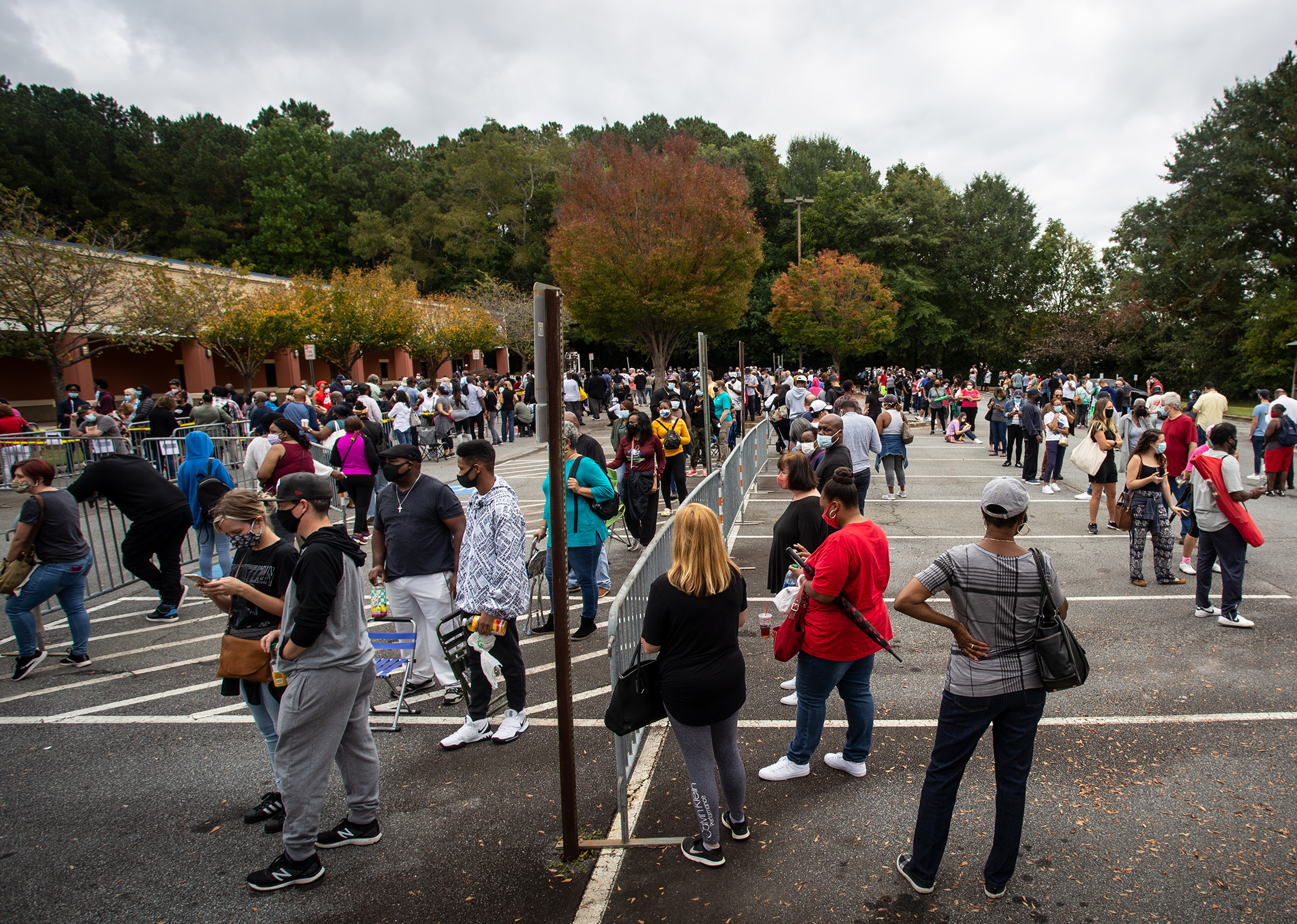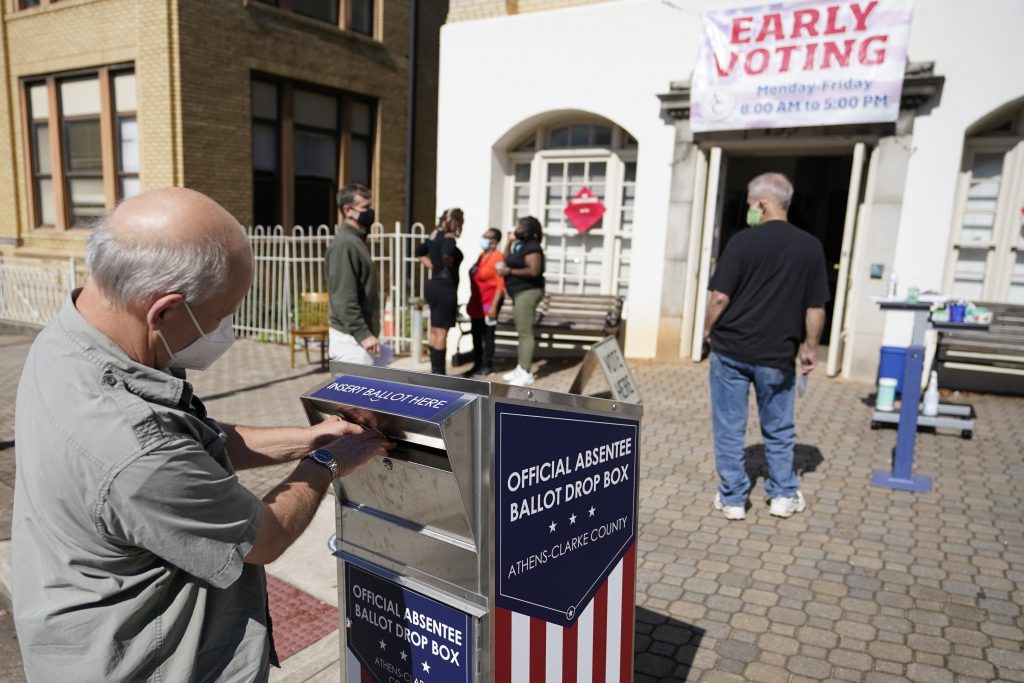The good, the bad and the ‘petty’ in Georgia’s new voting law

Hundreds of people wait in line for early voting in Marietta, Ga on Oct. 12, 2020. Georgia’s new voting law makes numerous changes to how elections will be administered, including a new photo ID requirement for voting absentee by mail.
Ron Harris / AP Photo
New sweeping voting laws in Georgia and other states were largely not necessary, according to David Becker with the bipartisan Center for Election Innovation and Research.
The laws have drawn condemnation from President Joe Biden down to state Democratic leaders who say the legislation is in direct response to false claims of voter fraud. Becker agrees.
“Much of the election reform that’s being considered right now is based on a fantasy, a lie, a big lie, that there was something wrong with how elections were run in 2020.”
He called last year’s presidential election “particularly secure, particularly transparent.”
But even Georgia Republicans who pushed back against baseless fraud claims from the 2020 election say many of the changes to Georgia’s new election law were made to instill uniformity and confidence.
“There were mechanical issues that needed to be fixed,” said Gov. Brian Kemp. “There were reasons to try to figure out a better way, a more accessible way and a more secure way for us to hold elections.”
Whatever those reasons, Becker says replacing the current system of signature matching for absentee ballots with a driver’s license or social security number is a good move because, since 2016, Georgia registers voters whenever they get a license through the Department of Driver Services.
“Georgia has a very effective automatic voter registration system in place where about 97% of Georgia voters have a driver’s license number associated with their record. Almost all of the rest have a social security number,” Becker said.
With such a system, he says fewer ballots would be rejected than through the current signature match.
However, Becker and voting rights advocates call new restrictions on ballot drop boxes, mobile voting units and food and water distribution at voting sites bad policy.
Law affects large counties most
Whether they call it out by name or not, Republicans often use Fulton County with its 800,000 registered voters as an example of how not to run elections.
“Counties with long-term problems of lines, problems with processing absentee ballots, and other challenges in administration need accountability,” said Republican state Sen. Max Burns as he presented Senate Bill 202 just before its final passage.
One of the key provisions in the new law, says Burns is the state’s ability to take over county elections offices with these persistent problems.
But the new law also scales back or prohibits things that helped large counties in 2020, like deploying dozens of absentee drop boxes and sending applications to encourage voting by mail.

It also bans counties from accepting private grant money used to open more polling sites and hire more workers to process absentee ballots.
“When you’re counting 2,000 votes, that’s one thing, when you’re counting hundreds of thousands of votes, that’s another,” said Emory University professor Carol Anderson.
Anderson, who studies the history of voting rights, says a one-sized fits all approach to running elections is impractical and disproportionately affects voters in larger cities — often minority voters.
Anderson says Georgia lawmakers from both parties should embrace the record voter turnout seen in the 2020 election cycle.
“But instead of that, we get this cauldron of gloom and doom, and we get this horrible bill that becomes a law that is designed to basically take the power away from voters,” she said.
Less power for elected secretary of state
The law also strips the Republican Secretary of State Brad Raffensperger of his chairmanship of the State Election Board. It’s a move by powerful state lawmakers who were unhappy with Raffensperger and his public dispute with President Trump.
David Becker says it’s bad policy to reduce the secretary of state’s power on the State Election Board to a non-voting member.
“There is nothing that helps elections in doing that, but it appears to be some kind of petty retribution against perceived disloyalty because he just did his job as well as he could and counted the votes as transparently as he did,” said Becker.
Raffensperger said he also disagrees with the part of the law that strips him of his powers but supports the other measures. Several lawsuits to halt the law from going into effect on July 1 have already been filed.








